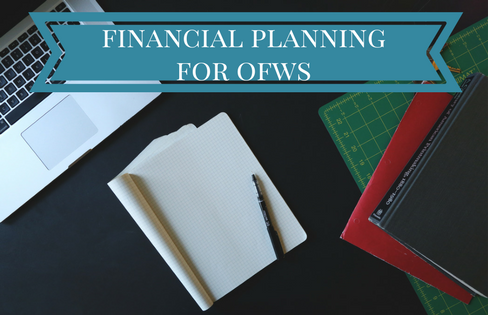Working overseas is not easy. There are lots of uncertainties and you will never know what could happen to you while you’re there. You also need to attend trainings, process documents, and ensure that your family is safe and secure while you are abroad.
Accomplishing many things can be overwhelming, especially before you leave. Don’t worry. These crucial steps, including how to manage finances, will help you prepare before you leave:
1) Complete your travel documents.
Before you leave, make sure you fill out completely and prepare all your travel documents, including passport and VISA. After all, any mistake not only costs you time but also money since processing fees are doubled.
You might sat that your employer will shoulder the processing costs. Fine. Still, completing all travel documents beforehand saves you against hassle and wasted time.
2) Make sure you have emergency money.
Many new OFWs are guilty of this: no pocket money.
Keep in mind that when you are deployed to another country to start a new job, you don’t have money or income for at least one month. Even if you received your income after a month, that won’t be enough to help you survive since you might end up sending most of your money back home, coupled with the challenges of establishing your finances abroad.
If you can, save at least two months-worth of salary. This will give you enough buffer as you go through the adjustment period. You may also want to avail of an OFW Loan from Balikbayad to help you as you settle abroad.
3) Establish a budget – and how much money you will send back home.
Earning in dollars does not always guarantee a good life. To make sure you can live a good life, you need to plan your spending and establish a budget, remittance included.
Before you leave, make sure you research about the cost of living in your country destination. Maximize the information you can find online to help you prepare for the expenses, including food, transportation, and rent (in case accommodation is not included).
Since you are in the process of setting up your budget, make sure to include monthly remittance as well. When it comes to remittances, it is important to establish not only how much money you will send back home but also the remittance provider you will use that will give you more savings.
Check this post to know more about remittance tips.
4) Take care of your existing financial obligations.
Did you borrow money from a relative? Did you apply for a loan to pay off your child’s tuition fee? Whatever financial obligations you have, make sure to do your best to pay them off before you leave. This will save you and your family against financial distress too.
Short in cash? Then consider getting a loan from private trusted lenders like Balikbayad. You get to enjoy low interest rate too.
5) Setup a bank account in the Philippines.
This is important. Several banks such as BPI and BDO offer savings account facilities for OFW, which you can also use for remittance purposes. Setting up a bank account allows you to manage your income, transfer money with ease, and even pay bills even if you are thousands of miles away. It’s more convenient too.
Check out this post to learn about the banks that offer Savings Account with Remittance feature.
Keep in mind that preparation goes a long way. Take note of these five tips and you are on your way to a less stressful transition when working overseas.

